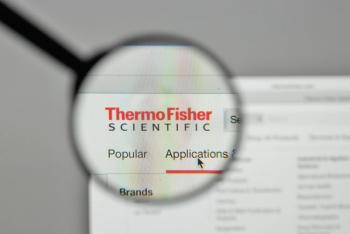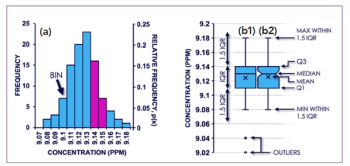
Digitalization for Labs Demands Standardizations and Shared Communication
At HPLC 2023, Dr. Joachim Richert held a plenary lecture about what steps need to be taken to reach true laboratory digitalization.
True digitalization of the laboratory is going to require standardization, particularly in the tools that enable that process, from automated sample dilution tools to the use of mobile cobots in labs (1).
That was the main point from Dr. Joachim Richert, the vice president of analytical sciences at BASF, during his plenary lecture at the 51st International Symposium on High Performance Liquid Phase Separations and Related Techniques (HPLC 2023) held this week.
“The promises [of machine learning (ML) and artificial intelligence (AI)] are high and what’s out there right now is already baffling,” Richert said. “Imagine what these systems can do once they are released on curated data in industry…that’s what makes them so powerful.”
Discussing the current offerings and promise of these technologies, Richert noted that ML and AI have the potential to provide support in:
- Data analysis and interpretation.
- Process optimizations.
- Predictive maintenance.
- Quality control and anomaly detection.
- Automation.
One of the key challenges to address in fully integrating these tools into the lab is a central communication method between all of them. Richert likened the process to a person sitting in a new car and the car syncing with their phone. Right now, this technology and the language for recognizing that technology is still in development for laboratory integration. However, this is on the way, thanks to key partnerships like the Laboratory and Analytical Device Standard (LADS)-OPC-UA joint workgroup. Founded through the efforts of OPC, SPECTARIS, VDMA, and other key stakeholders in the industry, this workgroup aims to help standardize peer-to-peer communication about lab workflows, digitalization, and automation.
Richert urged those in attendance who are interested in getting involved to learn more about initiatives like the LADS, simultaneously pleading for vocal advocacy for these initiatives in their own individual laboratories and companies.
“Once we are able to ‘plug and play’ our scientific instruments, we will get improved quality and usability and then we’ll be able to enable that ‘digital twin’ that we’re all dreaming of,” he concluded.
Reference
(1) Richert, J. Digital Transformation of the Analytical Laboratory—Big Bang or Evolution? Presented at: HPLC 2023. June 18–22, 2023. Duesseldorf, Germany. PLO4.
Newsletter
Join the global community of analytical scientists who trust LCGC for insights on the latest techniques, trends, and expert solutions in chromatography.




